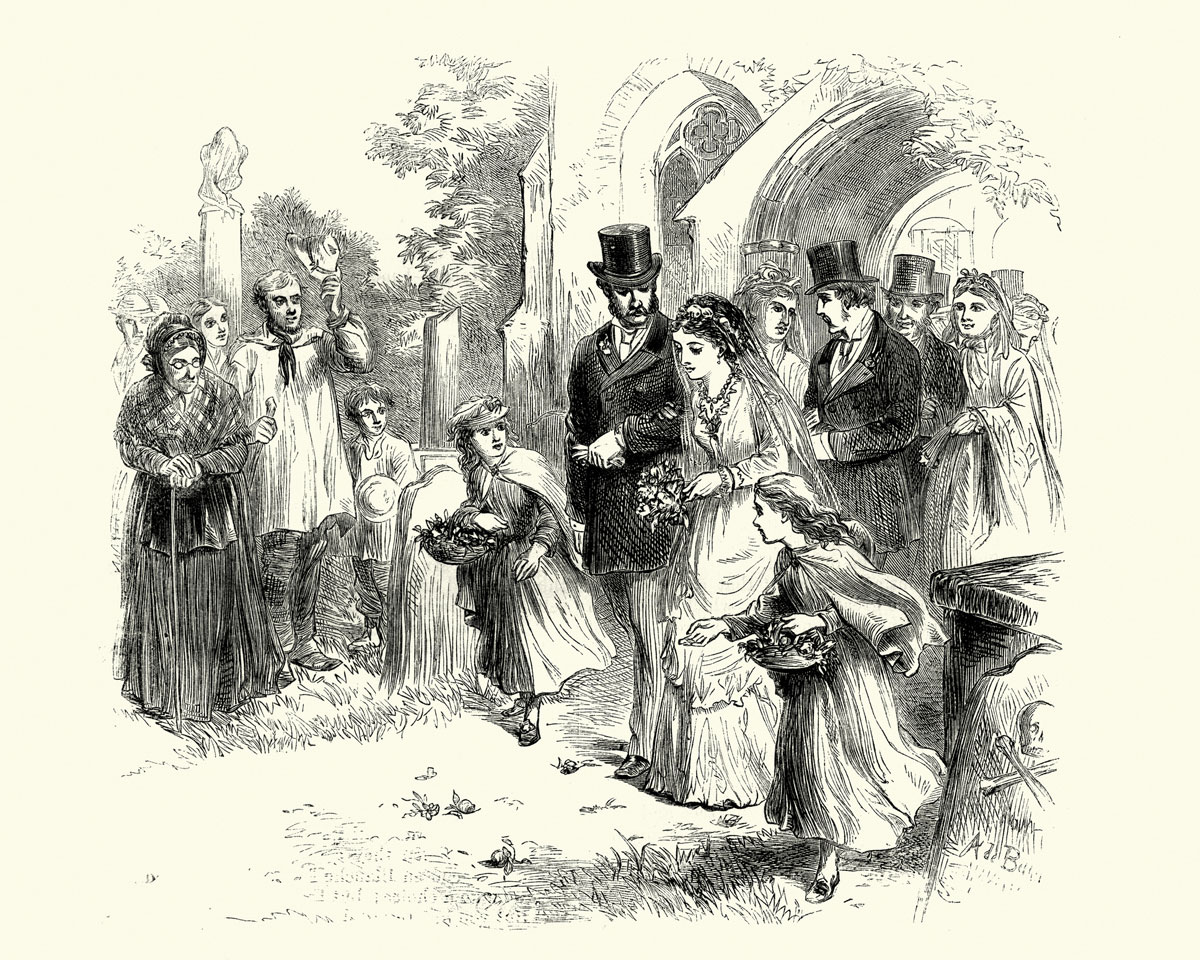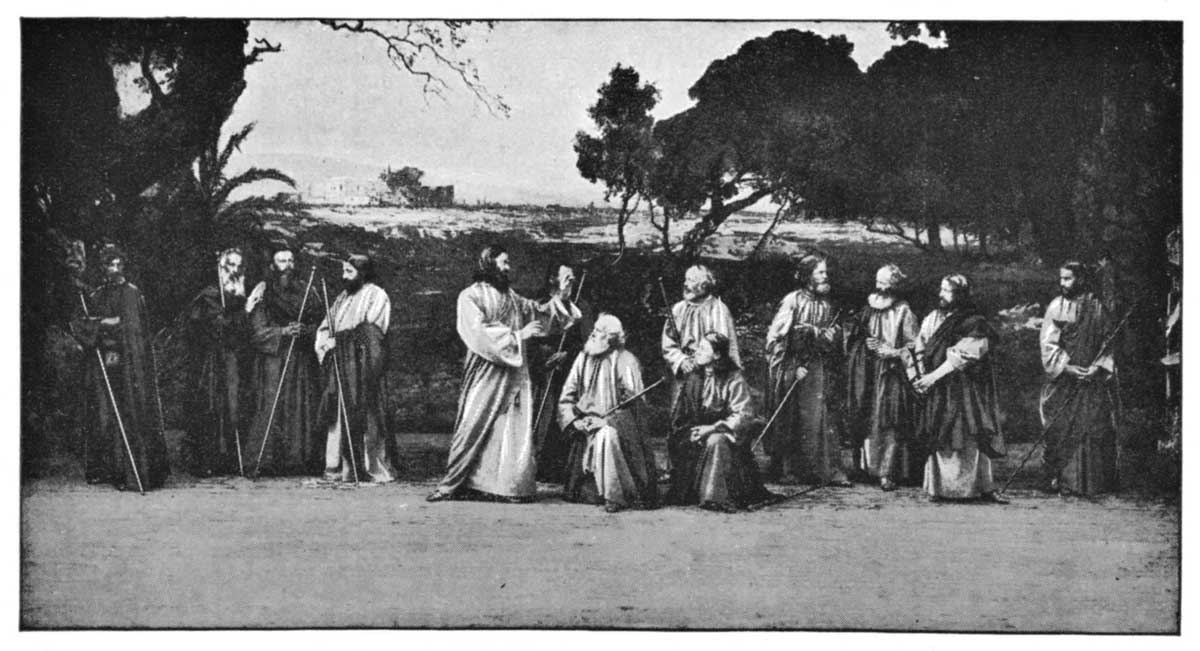Celibacy
The Forgotten Gift
by John W. Thompson
When Jesus called men and women to be his disciples, he did not hesitate to challenge them with hard sayings. His expectations for discipleship could not be met by routine religiosity or easy lip service. (Witness the Sermon on the Mount.) Even men and women already disposed toward him were at times amazed by what he called them to. Moreover, Jesus was very serious about the matter of commitment; he did not want mere profession, no matter how extravagant. He wanted follow through, a genuine yielding of the will. And so he would try to dissuade his followers from impulsively responding to a call that they were not yet prepared to live out. He always counselled counting the cost. Beyond this, what he required was not always a simple command, neatly cut and dried: he also required deep personal searching to see what one could give, and an encouragement to personal sacrifice, willingly given. It is somewhat disquieting for someone wishing to be truly generous in spirit with his Lord to realize that there is no ceiling to this voluntary and progressive sacrifice (what might be called the way of the cross, Matthew 16:24–26); there are no limits other than those imposed by nature or counselled by a pastoral prudence.
Though not popular and in some circles hardly discussed, these principles still apply. The Spirit of Jesus still moves men and women to such sacrifice; and the hard sayings of the gospel remain there for each generation, for each disciple. They often make us uncomfortable, at least to the degree that we hear them. And if honesty or the Spirit’s prompting won’t let us easily ignore them, we develop elaborate schemes, some psychological and some theological, to shield ourselves. For instance, we may dismiss Jesus’ hard sayings as “peripheral” to his true mission, or we may relegate specific applications to the shadowy realm of questionable practices and accretions from the early Church. Yes, we have many methods to render these hard sayings and disturbing counsels sufficiently inapplicable or removed from ourselves.
But we lose something by such maneuvers. The discomfort which these hard sayings sometimes create, like pain in our bodies, can be meant as a type of warning. And when we resort to anesthetizing the discomfort, before we have even had the chance to face it, we do ourselves and our potential for spiritual growth a disservice. For sometimes Jesus’ hard sayings uncover malfunctions, immaturity, and selfishness. In our attempts to kill the pain we may rather be cutting ourselves off from healing or a calling to a higher purpose and blessing.
One of these hard sayings of Jesus, also found in Paul’s teachings, concerns celibacy. Please note: this is a separate issue from mandatory clerical celibacy in the Roman Catholic church (which is not a biblical issue). Celibacy should also be distinguished from a mere preference for remaining single, lacking any real commitment or purposeful lifestyle. I am referring here to a commitment to an unmarried state (oftentimes in community), for the sake of the kingdom of heaven, (see the biblical counsel given in Matthew 19:12 and 1 Corinthians 7).
Celibacy is a relatively more familiar category for Roman Catholics and the Eastern Orthodox. Unfortunately, for all the biblical earnestness of some of our Protestant brethren, they tend to allow the gospel to be muffled here, ignoring a wonderful gift. There are some signs of a growing openness in Protestant circles, however, as shown by the appearance of an occasional book that deals with the subject (such as Money, Sex, and Power: The Challenge of the Disciplined Life, by Richard J. Foster); and occasional articles, such as “Remonking the Church” and “Singleness: Beyond the Stiff Upper Lip” in the August 12, 1988 and January 13, 1989 issues of Christianity Today. Nevertheless, in general there is within Protestantism a whole arsenal of defenses against celibacy. Behind these defenses lie inconsistencies, misconceptions, and historical baggage, not to mention a basic reluctance to address the issue at all.
I write from experience. Though I come from an Evangelical Christian background, I am committed to a celibate life in a religious community. And I have run up against a strange defensiveness from fellow Protestants more than once. I have been very disappointed to see strong Christians in the ironic position of justifying their refusal to use a badly needed tool, for fear of taint by what is to them unfamiliar and exotic. So please let me offer this apologia and put in a word in favor of this “forgotten gift.”
Celibacy & the Call to Discipleship
The New Testament commends celibacy as a way of promoting “undivided devotion to the Lord” (1 Corinthians 7:35); deepening the Christian’s commitment to discipleship; and better attaining and serving the Kingdom (Matthew 19:12). In the words of Christ, some—those who could accept it—would voluntarily “make themselves eunuches for the sake of the kingdom of heaven.” Now may I point out that Jesus’ choice of the word eunuch was deliberate: becoming a eunuch is something quite irreversible. He did not say “remain unmarried,” which he could have said easily enough. The loaded word “eunuch” implies a real commitment, not something to be taken back later. This should not surprise us. We know from his other teachings that Jesus took commitment very seriously: “No one who puts his hand to the plow and looks back is fit for service in the Kingdom of God” (Luke 9:62). Jesus, of course, recognized that not all would be able to comply with this, as he indicated in his cryptic remark, “He who is able to receive this, let him receive it” (implying that there would be those who would not receive it). This qualification, however, may be too quickly seized upon by some who may be more than a little afraid that they just might be able to “receive” the celibate life if they carefully examined themselves. Have no fear: Christ does not impose this; he merely counsels it for those who are able to receive it.
Christ’s commendation of celibacy has traditionally been linked with two of his other teachings—about possessions (cf. Luke 12:33) and about obedience (cf. John 13:20)—to form the “evangelical (meaning ‘derived from the Gospel’) counsels.” This commitment to poverty, chastity, and obedience, as they are usually called, forms the basis of the monastic or “religious” lifestyle, and represents a response to Christ’s call to discipleship that, for all its failures, has been a frequent source of renewal in the Church.
John Thompson is a librarian and professor at Waynesburg University, Waynesburg, Pennsylvania
bulk subscriptions
Order Touchstone subscriptions in bulk and save $10 per sub! Each subscription includes 6 issues of Touchstone plus full online access to touchstonemag.com—including archives, videos, and pdf downloads of recent issues for only $29.95 each! Great for churches or study groups.
Transactions will be processed on a secure server.
more on sex from the online archives
more from the online archives
calling all readers
Please Donate
"There are magazines worth reading but few worth saving . . . Touchstone is just such a magazine."
—Alice von Hildebrand
"Here we do not concede one square millimeter of territory to falsehood, folly, contemporary sentimentality, or fashion. We speak the truth, and let God be our judge. . . . Touchstone is the one committedly Christian conservative journal."
—Anthony Esolen, Touchstone senior editor














